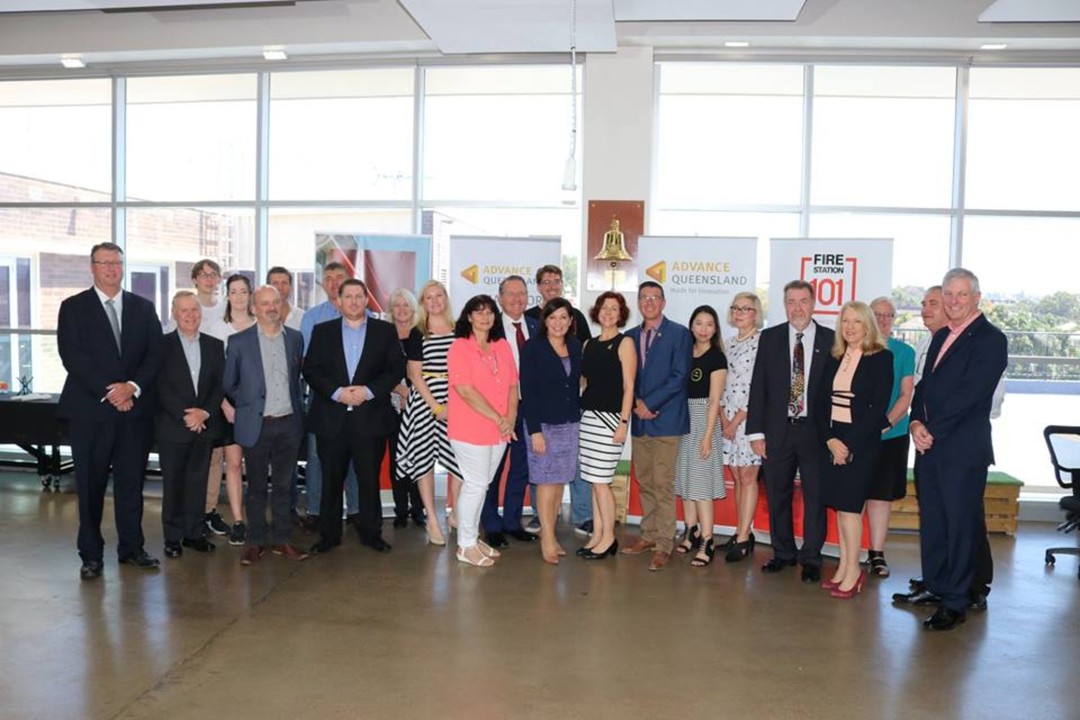The Ipswich and West Moreton Advancing Regional Innovation Program: Creating entrepreneur pathways, building an ecosystem
This past week saw the announcement of the Advance Queensland Advancing Regional Innovation Program for the Ipswich and West Moreton region. The program is an incredible opportunity to create entrepreneurial pathways in the region and build capability and capacity into the regional innovation ecosystem. Here are details about the upcoming program and some personal reflections on the journey.
ARIP: Creating innovation outcomes
The Advancing Regional Innovation Program (ARIP) provides $500k in matched funds to 12 regions across Queensland. The program is designed to attract a matching $500k of investment, creating a $1 million program focused on regional innovation over three years.
The program is not prescriptive, leaving it to each region to define what is needed. Funds could be used for initiatives such as places and spaces, connectivity to build entrepreneurial capability and skill, collaboration tools and platforms, leadership roles and structures, and communities of practice.
There is no one way to build innovation capability. Each region is a unique combination of history, identity, industry, talent, policy, technology, leadership, and investment. Each of these areas combined creates an “ecosystem” held together by relationships and culture. ARIP is designed to build sustainable capability and capacity into these regional ecosystems.
ARIP presented an interesting challenge: How would you spend $1 million for innovation in your region? The emphasis was on ‘how’ and ‘why’ rather than ‘what’. The outcomes were to create collaborations and sustainability that will persist long after the program funding stops.
The path to create a program for Ipswich and West Moreton
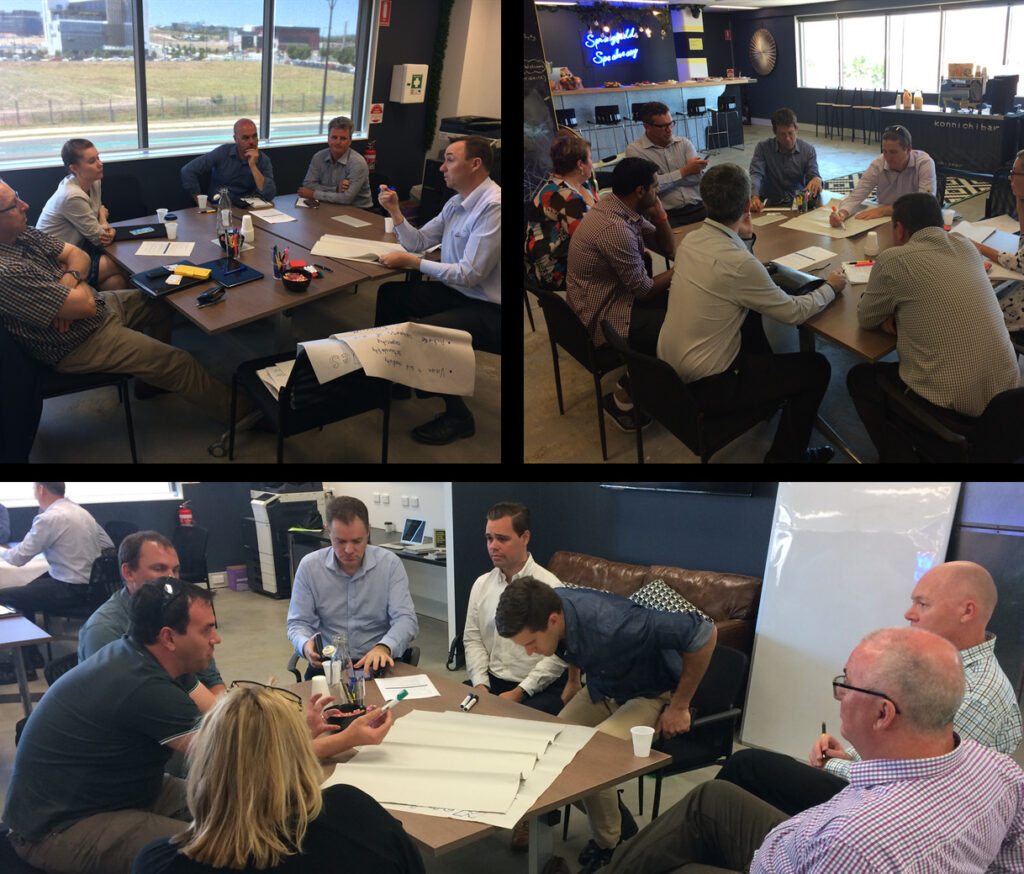
The response from Ipswich and West Moreton was developed through collaborative workshops with stakeholders from diverse groups in industry, education, university, innovation hubs, community groups, and local government. We needed a range of perspectives, as our combined regions represent diverse geography, a broad industry representation, and rapid growth.

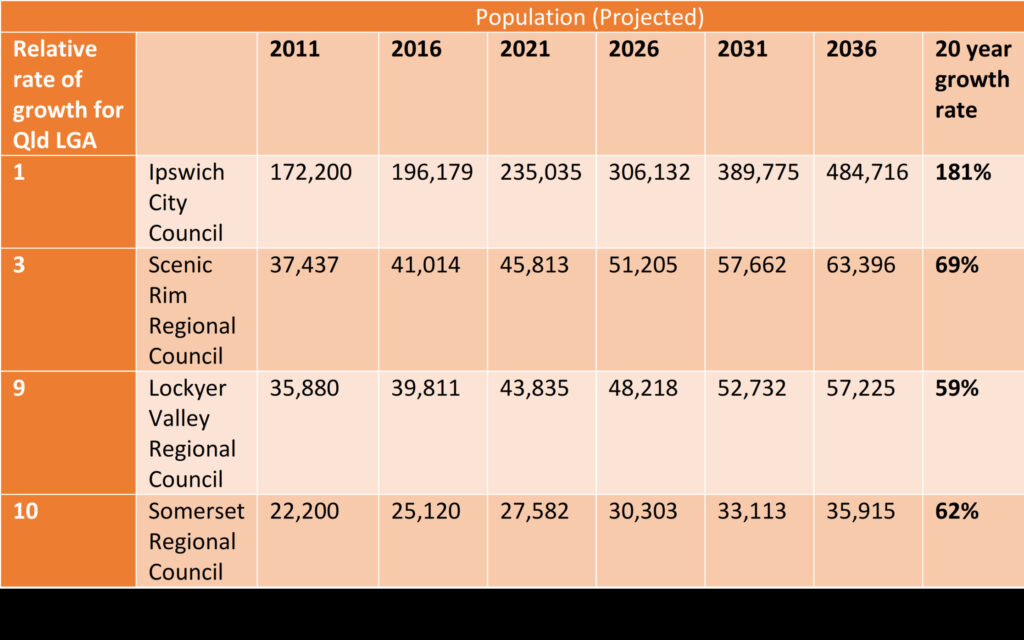
Each of the regions is within the top ten fastest growing Council regions in the state. The growth provides opportunities while also requiring new approaches to finding as well as creating new forms of employment.
In addition to the rapid growth, the regions also have diverse industry sectors. Ipswich supports a range of industries including defence, health, education, manufacturing, transport and logistics, and food. Ipswich is also an increasingly younger region, reporting the lowest age demographic in the state.
By comparison, the regions of Lockyer Valley, Scenic Rim, and Somerset Councils have a greater focus on specific industry sectors. The Lockyer Valley is one of Australia’s leading agricultural production areas, supplying 95 per cent of the nation’s winter vegetables. The Lockyer Valley represents 10 per cent of Australian and 40 per cent of Queensland farmers providing approximately 12-14 per cent of the Queensland agricultural economy. Somerset and Scenic Rim both provide significant opportunities for tourism, agriculture, and food manufacturing.
The feedback from the collaborative partners in the workshops was to focus on talent development and provide a platform that could accommodate diverse sectors and expand with the region.
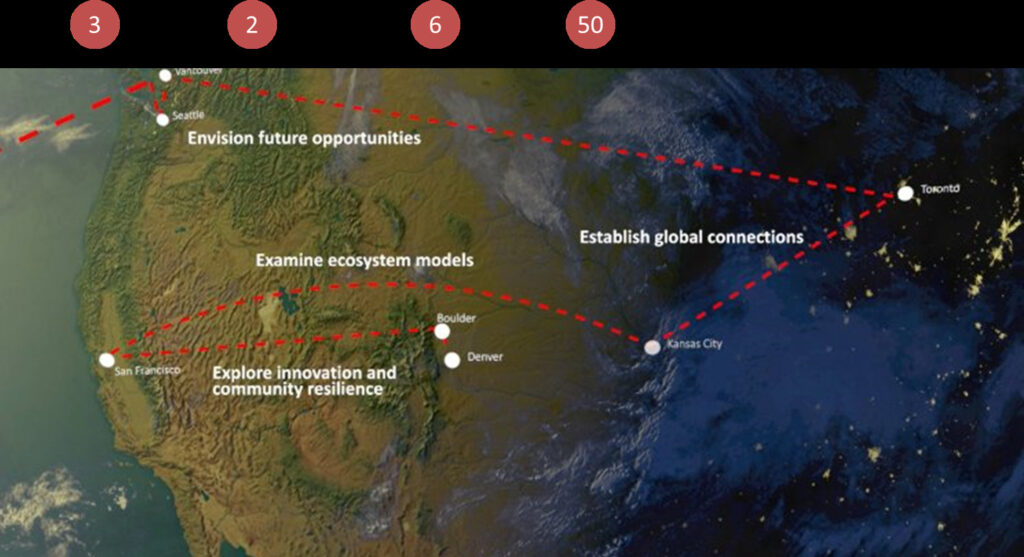
To test this feedback and gain an external perspective, I flew to North America to visit seven different ecosystems over three weeks. Part of the trip was through Startup Catalyst with support from Advance Queensland, and the other part self-directed to learn and test assumptions. Lessons from other regions included a need for specialisation, support investing in talent for upcoming generations, and develop strategies to partner with industry.
The outcome: Unleashing entrepreneurial talent and industry capability in the region
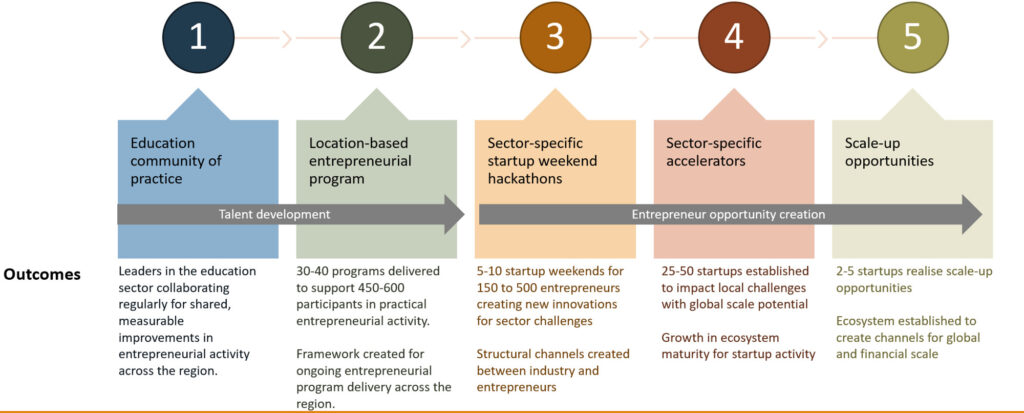
The resulting program has two components:
- Talent development through entrepreneurial education – action-based training programs with an emphasis on young people in high schools, and
- Industry engagement through ten sector-specific weekend hackathons and accelerator programs.
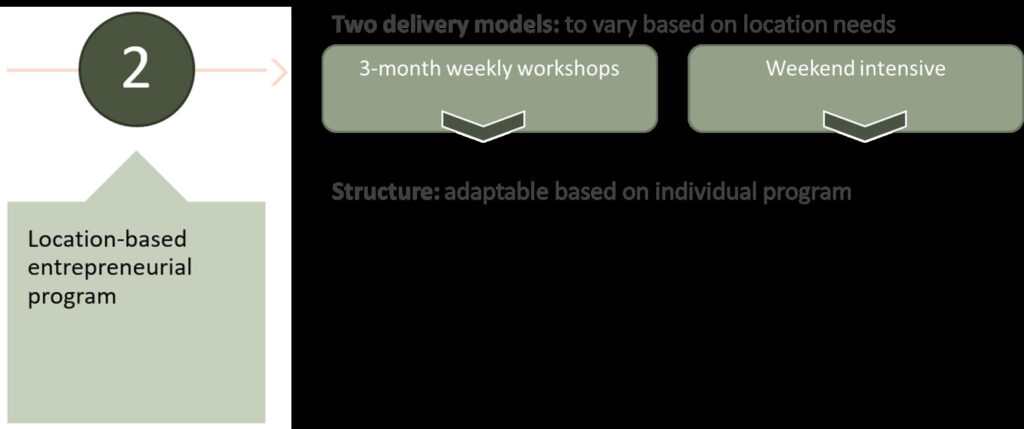
The high school program is being developed by Tafe in collaboration with the startup community and USQ to support single-term extra-curricular entrepreneurial programs delivered after school and over weekend intensives. The program is mapped to competencies to provide a pathway to certification.
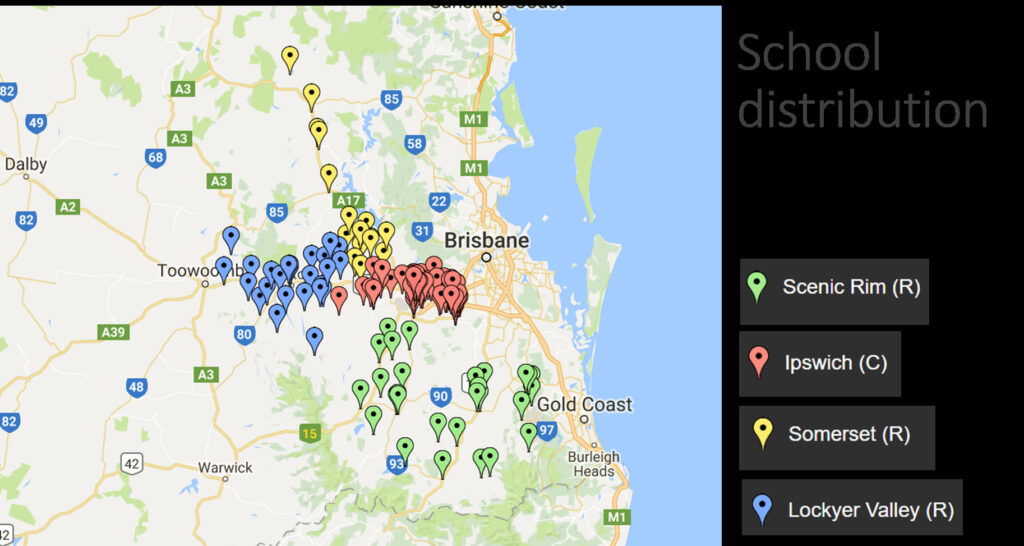
More importantly, the program exposes young people across the region to entrepreneurial thinking through practical experience and connects them with mentors locally through the Chamber of Commerce and outside to other entrepreneur communities.
The changing job market means young people need to learn how to not only find a job, but to create a job. This thought process can be a challenge within the constraints of school curriculum. Entrepreneurship can be a viable option in addition to established pathways of career or trade. What would it look like if young people are encouraged to graduate high school with not only an OP score or a trade, but also customer in the market?
Entrepreneurs, however, need more than education and practice. They require industry mentors, investors, and customers.
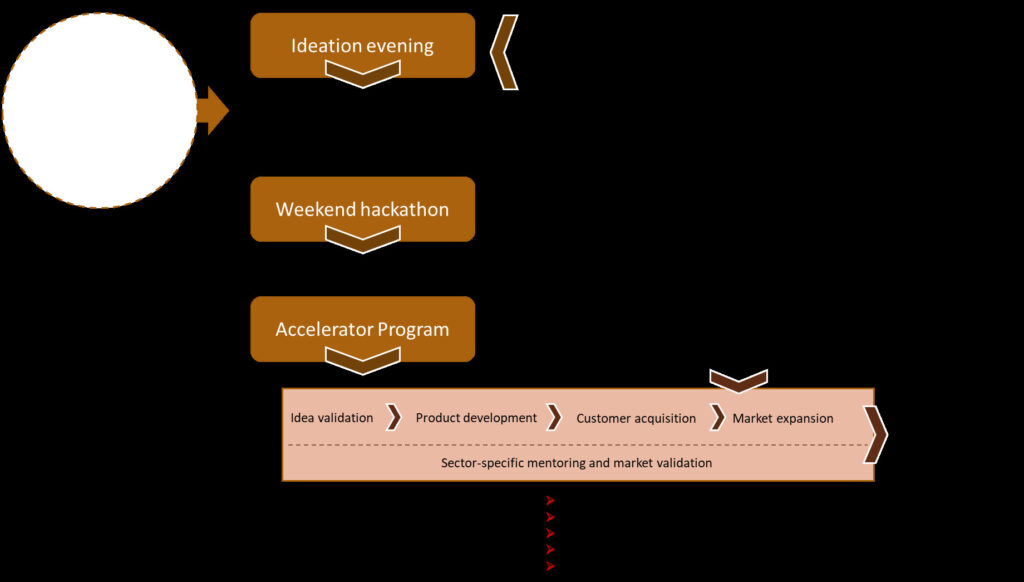
The accelerator component of the program will deliver programs for ten industry clusters across the region. The programs will kick off with intensive “hackathons” where Industry clusters will offer their challenges, data, technology, mentors, supply chains, and networks over a weekend to develop solutions. These events will be followed by a 10 to 12-week acceleration program to further develop the ideas, with $30,000 being made available from the cluster to up to three participants to get their ideas to market.
Mentoring, support, and the potential for a first lighthouse customer are critical to get startups past early stages. The program attracts investment from partners already earmarked for innovation, research and development, and opportunities to realise improved efficiencies and revenue from new ideas. The accelerator program focuses these funds into practical, structured outcomes.
The program is designed to provide opportunities for scale through the cluster networks and beyond. These scale outcomes are expected to emerge in year three and beyond.
Partners and next steps
The program represents a collaboration across the region. The program is governed by a consortium including Ipswich City Council, Springfield Land Corporation, Little Tokyo Two, Fire Station 101, and USQ. This group is supported by advisors and delivery partners including TafeSW, Ipswich Chamber of Commerce, industry cluster partners including Queensland Urban Utilities, Motor Trade Association of Queensland, Llewellyn Motors, Australian Wild Camel Corporation, and the other regional councils of Lockyer Valley, Somerset, and Scenic Rim.
The schools program is scheduled to begin in Term 1, 2018. The program will be offered to high schools in the region, focusing on grades 9 to 12. Plans for the rollout of the program and how schools can sign up will be released in the next few weeks.
The first accelerator program kicks off on 20 October and focuses on clean-tech / waste-tech / smart cities with Queensland Urban Utilities. The second program for Motor Trade Association of Queensland will be in early 2018 and focus on transport, mobility, and logistics. Other partners planned include an emphasis on agriculture in Lockyer Valley and a focus on food manufacturing and tourism in Scenic Rim with the Australian Wild Camel Corporation.
It has been a 12-month journey to bring the collaborators together, architect the program structure based on feedback, and test and validate the assumptions in other markets. I am excited about the industry leaders already being attracted by the opportunity who desire practical outcomes from innovation investment. It is encouraging to see many schools across the region already leading the way, establishing innovation hubs within the schools and developing entrepreneurial programs. The ARIP framework will help spark new opportunities across the region and bring fuel to fires that have already started to burn.
The value of the program is not only in the participants it will impact, but in the opportunities others will see that we have not anticipated. Already there are plans outside of the ARIP framework to extend the talent development to primary schools, leverage the connection with schools to deliver new technology across the region, and create a bridging mentoring program between the youth talent development and local industry. This is the real value of the program, to inspire the region to build the ecosystem beyond what we could have anticipated.
There remains much to do. The program coordinator is expected to come on board in the next few weeks, the program brand and website are in development, and we are actively bring on other partners for years 2 and 3.
The program creates a framework for anyone who wants to support the ecosystem to get involved. We are building resilience into the region to support anyone who wants to give it a go, starting with the question “How can I help?”
If this is you, please drop me a line, keen to have a conversation.

